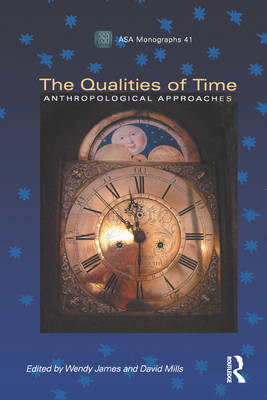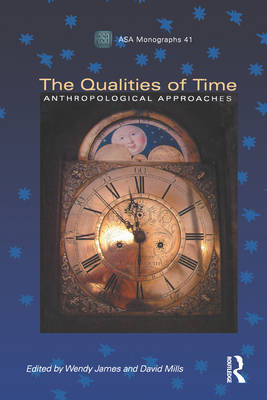
- Afhalen na 1 uur in een winkel met voorraad
- Gratis thuislevering in België vanaf € 30
- Ruim aanbod met 7 miljoen producten
- Afhalen na 1 uur in een winkel met voorraad
- Gratis thuislevering in België vanaf € 30
- Ruim aanbod met 7 miljoen producten
Zoeken
€ 74,95
+ 149 punten
Omschrijving
This book explores the relevance of classical ideas in the anthropology of time tothe way we understand history, participate in the events around us, and experienceour lives. Time is not just an abstract principle we live by or a local cultural construct: it is shaped, punctuated, organized, and suffered in complex ways by real people negotiating their lives and relations with others. Space may be opened up for politics, violence or revolutionary change within the framework of ceremonial markers of social time: holy days, festivals and carnivals. People create and recreate patterns in the way they imagine the past, present and future at such moments, through material objects, language, symbolic action and bodily experience. The rhythms of social life, including periodic episodes of sacred or special time, interact with 'historical events' in strange ways. They are fundamental not only to the human condition but to the making andremembering of history, as well as to what we recognize as the unexpected or abnormal. The Qualities of Time brings anthropologists and archaeologists together in a new conversation about the 'patterns' of our understanding and experience of time. The authors reflect on how we should interpret evidence about the distant past, andhow far the structuring of social time is a human universal. They also consider whether anthropology itself has been so oriented to the present it has still to develop ways of dealing with temporality. The interactions of time-structures, ceremonials, and specific historical events, including violence inspired by the millennium, are interrogated. The experience of individuals who feel the times are for them 'out of joint' is also examined. By combining socio-cultural, philosophical and historical approaches, thisthought-provoking book moves anthropological debates about time's qualities wellbeyond existing studies.This book explores the relevance of classical ideas in the anthropology of time toth
Specificaties
Betrokkenen
- Uitgeverij:
Inhoud
- Aantal bladzijden:
- 392
- Taal:
- Engels
- Reeks:
Eigenschappen
- Productcode (EAN):
- 9781845200749
- Verschijningsdatum:
- 15/12/2005
- Uitvoering:
- Paperback
- Formaat:
- Trade paperback (VS)
- Afmetingen:
- 157 mm x 232 mm
- Gewicht:
- 580 g

Alleen bij Standaard Boekhandel
+ 149 punten op je klantenkaart van Standaard Boekhandel
Beoordelingen
We publiceren alleen reviews die voldoen aan de voorwaarden voor reviews. Bekijk onze voorwaarden voor reviews.










